2018 School Spending Survey Report
25 Authors for Teens Share Their 2018 Writing Resolutions
SLJ reached out to authors from our 2017 Best Books for Teens list to compile their writing and creative goals for 2018.
The start of a new year usually signifies a fresh start for most people, even YA authors. SLJ reached out to authors from our 2017 Best Books for Teens list to compile any writing and creative goals they may have resolved for 2018.
In 2018, I'm going to take a break from writing about the young to write about the old. It's frightening, but that's what I want to do. Increasingly, as I myself stumble into middle age, I'm compelled by the problems I see the generation above me encountering—which will, in just a few decades, be mine. And I don't think the culture wants to talk much about aging and what it's like. How do you wrest triumph from aging, from death itself? What will my generation be like when we're 80 or 90?
In a related resolution, I plan on getting out of my pajamas before noon more this year.
 Elana K. Arnold, author of National Book Award finalist What Girls Are Made Of (Lerner/Carolrhoda). I plan to be more intentional about story structure. As I begin working on a project that is different than any of my previous books, I am going to study how other writers have approached the genres I want to explore (existentialism and noir), and I’m going to begin my book with structure rather than finding its structure after several drafts. At least, I will try!
Elana K. Arnold, author of National Book Award finalist What Girls Are Made Of (Lerner/Carolrhoda). I plan to be more intentional about story structure. As I begin working on a project that is different than any of my previous books, I am going to study how other writers have approached the genres I want to explore (existentialism and noir), and I’m going to begin my book with structure rather than finding its structure after several drafts. At least, I will try!  Marc Aronson, coauthor of YALSA Excellence in Nonfiction finalist Eyes of the World (Holt). I have two books to finish, one of my own and another where my two sons will help out; assuming that we got those done (which means my spring teaching semester goes well, I am diligent and the boys are cooperative), I hope that Marina and I can nail down the new project we've been discussing. In other words, I hope this is a year of teaching, researching, travel, writing, family—and, for all our sake—political change.
Marc Aronson, coauthor of YALSA Excellence in Nonfiction finalist Eyes of the World (Holt). I have two books to finish, one of my own and another where my two sons will help out; assuming that we got those done (which means my spring teaching semester goes well, I am diligent and the boys are cooperative), I hope that Marina and I can nail down the new project we've been discussing. In other words, I hope this is a year of teaching, researching, travel, writing, family—and, for all our sake—political change.  Tonya Bolden, author of Crossing Ebenezer Creek To never take a great editor or a publisher’s support of my work for granted!
Tonya Bolden, author of Crossing Ebenezer Creek To never take a great editor or a publisher’s support of my work for granted!  Marina Budhos, coauthor of YALSA Excellence in Nonfiction finalist Eyes of the World (Holt). I'm a classic “sandwich generation” person—in between an elderly parent with health issues and the demands of raising a preteen and teenager. My aim for 2018 is to not get knocked off my writing vibe and to create a much better balance and a more sacrosanct, undistracted space for writing. The second resolution is connected to the first—to get less distracted by news and other buzzing items and “play” more with my writing, to generate new projects. I have a new young adult for my editor Wendy Lamb, but that is in the revision stage. Otherwise, this is my time to play and allow myself to fall in love with some new fiction/nonfiction worlds.
Marina Budhos, coauthor of YALSA Excellence in Nonfiction finalist Eyes of the World (Holt). I'm a classic “sandwich generation” person—in between an elderly parent with health issues and the demands of raising a preteen and teenager. My aim for 2018 is to not get knocked off my writing vibe and to create a much better balance and a more sacrosanct, undistracted space for writing. The second resolution is connected to the first—to get less distracted by news and other buzzing items and “play” more with my writing, to generate new projects. I have a new young adult for my editor Wendy Lamb, but that is in the revision stage. Otherwise, this is my time to play and allow myself to fall in love with some new fiction/nonfiction worlds. 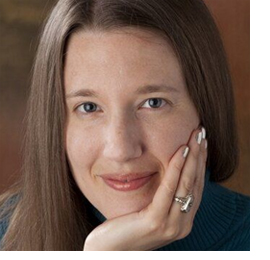 Kristin Cashore, author of Jane, Unlimited (Penguin/Kathy Dawson Bks). I have two kinds of writer‘s resolutions for 2018: one practical, and one emotional. The practical resolution is that I’m going to finish the first draft of my novel-in-progress AND finish a good strong revision of a mystery I’ve already written. The emotional resolution is one that I make every year: I’m going to let my writing doubts and demons keep me company while I write (because it’s no use pretending they’re not part of me), but I’m not going to let them stop me from writing.
Kristin Cashore, author of Jane, Unlimited (Penguin/Kathy Dawson Bks). I have two kinds of writer‘s resolutions for 2018: one practical, and one emotional. The practical resolution is that I’m going to finish the first draft of my novel-in-progress AND finish a good strong revision of a mystery I’ve already written. The emotional resolution is one that I make every year: I’m going to let my writing doubts and demons keep me company while I write (because it’s no use pretending they’re not part of me), but I’m not going to let them stop me from writing.  Lisa Charleyboy, coeditor of YALSA Excellence in Nonfiction finalist #NotYourPrincess (Annick). My writer's resolution for 2018 is to get back into the practice of morning rituals. As my life gets busier and more complicated, I can too easily forget the basics. And not to get all “Julia Cameron” here, but my basics help nourish my creative soul. I miss those early mornings spent with coffee, a journal, and a great book. I write for how long I'm able to—even if it's just 10 minutes—and I read whatever is interesting me at the moment—best when it's completely different than anything else I am working on. It's the simple act of doing something solely for myself that gives me the freedom to explore the day in an entirely different way.
Lisa Charleyboy, coeditor of YALSA Excellence in Nonfiction finalist #NotYourPrincess (Annick). My writer's resolution for 2018 is to get back into the practice of morning rituals. As my life gets busier and more complicated, I can too easily forget the basics. And not to get all “Julia Cameron” here, but my basics help nourish my creative soul. I miss those early mornings spent with coffee, a journal, and a great book. I write for how long I'm able to—even if it's just 10 minutes—and I read whatever is interesting me at the moment—best when it's completely different than anything else I am working on. It's the simple act of doing something solely for myself that gives me the freedom to explore the day in an entirely different way. 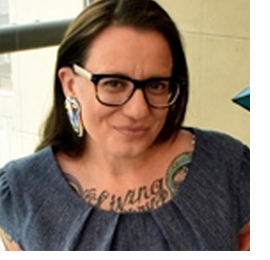 Cherie Dimaline, author of Kirkus Prize winner The Marrow Thieves (Dancing Cat Bks). It’s hard for a writer, or an artist of any sort I would guess, to stay confident that they can make a living off their art alone. It’s always been my habit to have at least one other full-time job (we call those the rent-payers) while writing. Recently I was (binge) watching The Magicians on Netflix, and one of the witches said to the other of working on her magic, something along the lines of “in order to accomplish the bigger things, you have to work without a safety net.” So, as much as I can, I am going to put my writing first. It comes before the other jobs. It comes a close second to my kids, and even the dogs. It will get my full attention; it’s the only way to expect that it will accomplish great things. As writers, we have an obligation to our stories, to care for them and present them in the best possible way. This includes giving them enough nurturing while in the writing process, and being fully involved in the “business of writing” part of it—signings, contracts, visiting classrooms, traveling to get it out there. So because I can't create more hours in the day, I will carve out from the existing time I have. Writing will come first.
Cherie Dimaline, author of Kirkus Prize winner The Marrow Thieves (Dancing Cat Bks). It’s hard for a writer, or an artist of any sort I would guess, to stay confident that they can make a living off their art alone. It’s always been my habit to have at least one other full-time job (we call those the rent-payers) while writing. Recently I was (binge) watching The Magicians on Netflix, and one of the witches said to the other of working on her magic, something along the lines of “in order to accomplish the bigger things, you have to work without a safety net.” So, as much as I can, I am going to put my writing first. It comes before the other jobs. It comes a close second to my kids, and even the dogs. It will get my full attention; it’s the only way to expect that it will accomplish great things. As writers, we have an obligation to our stories, to care for them and present them in the best possible way. This includes giving them enough nurturing while in the writing process, and being fully involved in the “business of writing” part of it—signings, contracts, visiting classrooms, traveling to get it out there. So because I can't create more hours in the day, I will carve out from the existing time I have. Writing will come first. 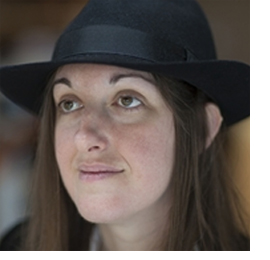 Frances Hardinge, author of A Skinful of Shadows (Abrams/Amulet). I'm always really impressed by authors who manage to write at a steady, even rate. My productivity varies wildly, and I'm usually a crazed, gibbering, sleep-deprived wreck for the last month before the deadline. For the next book I would like to be disciplined enough to avoid this! (I say this every year.)
Frances Hardinge, author of A Skinful of Shadows (Abrams/Amulet). I'm always really impressed by authors who manage to write at a steady, even rate. My productivity varies wildly, and I'm usually a crazed, gibbering, sleep-deprived wreck for the last month before the deadline. For the next book I would like to be disciplined enough to avoid this! (I say this every year.) 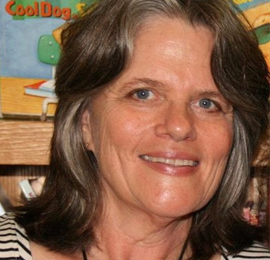 Deborah Heiligman, author of Boston Globe/Horn Book Prize winner Vincent and Theo (Holt). Believe it or not, my writer's resolution for this year is: Take a break. Let me clarify: I have two books to finish first. But once they are finished, I am going to force myself to take at least a month off. I need to rest—and to fill up the well so I can find my next great idea. I want to go through old family papers and photos; go to museums and historical sites; walk around and explore neighborhoods here in New York City; go through old files; and read a lot and widely. Oops, I forgot about the resting part. I might need two months.
Deborah Heiligman, author of Boston Globe/Horn Book Prize winner Vincent and Theo (Holt). Believe it or not, my writer's resolution for this year is: Take a break. Let me clarify: I have two books to finish first. But once they are finished, I am going to force myself to take at least a month off. I need to rest—and to fill up the well so I can find my next great idea. I want to go through old family papers and photos; go to museums and historical sites; walk around and explore neighborhoods here in New York City; go through old files; and read a lot and widely. Oops, I forgot about the resting part. I might need two months. 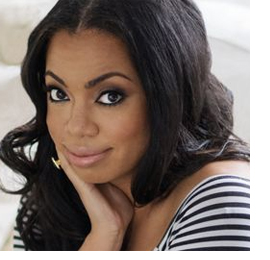 Tiffany D. Jackson, author of Allegedly (HarperCollins/Katherine Tegan Bks). Fall back in love with writing by taking breaks to stretch my creative muscles. Read more poetry, visit museums, try new foods, and attend plays. Exposure to art helps rejuvenate inspiration.
Tiffany D. Jackson, author of Allegedly (HarperCollins/Katherine Tegan Bks). Fall back in love with writing by taking breaks to stretch my creative muscles. Read more poetry, visit museums, try new foods, and attend plays. Exposure to art helps rejuvenate inspiration.  Kelly Jensen, editor of Here We Are (Algonquin). I don't make resolutions because they put too much pressure on self-improvement rather than self-investment. So instead, I'm letting the word "create" guide my new year. I plan to create magic, create words, create means of sharing stories and books I love, and create impactful change in my world.
Kelly Jensen, editor of Here We Are (Algonquin). I don't make resolutions because they put too much pressure on self-improvement rather than self-investment. So instead, I'm letting the word "create" guide my new year. I plan to create magic, create words, create means of sharing stories and books I love, and create impactful change in my world.  Mary Beth Leatherdale, coeditor of YALSA Excellence in Nonfiction finalist #NotYourPrincess (Annick). My writer’s resolution for 2018 doesn’t involve minimum daily word counts or timed writing bursts. It involves reading—committing substantial periods of my work day to reading books not just for research but for pleasure. Books of different genres. Books for different audiences. Books from different periods. Books from different cultures. Books that will teach me there are many effective ways to engage readers. Books that will inspire me to try.
Mary Beth Leatherdale, coeditor of YALSA Excellence in Nonfiction finalist #NotYourPrincess (Annick). My writer’s resolution for 2018 doesn’t involve minimum daily word counts or timed writing bursts. It involves reading—committing substantial periods of my work day to reading books not just for research but for pleasure. Books of different genres. Books for different audiences. Books from different periods. Books from different cultures. Books that will teach me there are many effective ways to engage readers. Books that will inspire me to try.  Cynthia Levinson, coauthor of Fault Lines in the Constitution (Peachtree). I intend to write in new-to-me ways in 2018—free verse, humor, maybe even fiction! I hope (please tell me that's the same as “resolve!”) to find a more comfortable balance between work and everything else.
Cynthia Levinson, coauthor of Fault Lines in the Constitution (Peachtree). I intend to write in new-to-me ways in 2018—free verse, humor, maybe even fiction! I hope (please tell me that's the same as “resolve!”) to find a more comfortable balance between work and everything else.  Sanford Levinson, coauthor of Fault Lines in the Constitution (Peachtree). To keep fully engaged as I enter more fully into my sunset years, which is easier to do if one thinks about the next generations and is writing for and talking with teenagers.
Sanford Levinson, coauthor of Fault Lines in the Constitution (Peachtree). To keep fully engaged as I enter more fully into my sunset years, which is easier to do if one thinks about the next generations and is writing for and talking with teenagers.  Mary Losure, author of Isaac the Alchemist (Candlewick). For the New Year, I resolve to remember: that no matter what happens, the world is still an amazing and wonderful place! And that I am lucky to be able to do work I love, and that BOOKS MATTER!
Mary Losure, author of Isaac the Alchemist (Candlewick). For the New Year, I resolve to remember: that no matter what happens, the world is still an amazing and wonderful place! And that I am lucky to be able to do work I love, and that BOOKS MATTER! 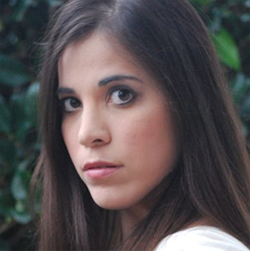 Anna-Marie McLemore, author of Wild Beauty (Feiwel & Friends). This year, I’m resolving to write, as much as I can, from a place of possibility. 2017 sometimes drove me into a place of fear and of feeling small—as a Latina woman, as a queer woman, as an artist—and I know I’m not alone. So this year I want to hold close why I love stories: they let us show the often-brutal truth of the world around us, but also reveal what might be possible, the strength we hold in our own hearts.
Anna-Marie McLemore, author of Wild Beauty (Feiwel & Friends). This year, I’m resolving to write, as much as I can, from a place of possibility. 2017 sometimes drove me into a place of fear and of feeling small—as a Latina woman, as a queer woman, as an artist—and I know I’m not alone. So this year I want to hold close why I love stories: they let us show the often-brutal truth of the world around us, but also reveal what might be possible, the strength we hold in our own hearts.  Sandhya Menon, author of When Dimple Met Rishi (S. & S./Simon Pulse). My writer's resolution for 2018 is to continue to put out lighthearted, happy stories into the world. Now more than ever, teens of every background need to be able to see themselves having fun, falling in love, and chasing their passions. I consider it my deepest privilege to be able to do this!
Sandhya Menon, author of When Dimple Met Rishi (S. & S./Simon Pulse). My writer's resolution for 2018 is to continue to put out lighthearted, happy stories into the world. Now more than ever, teens of every background need to be able to see themselves having fun, falling in love, and chasing their passions. I consider it my deepest privilege to be able to do this!  Mitali Perkins, author of You Bring the Distant Near (Farrar). My 2018 writing resolution is simple: to READ and WRITE fiction on a daily basis. I've heard it takes 21 days to form a habit. If I really believe, as Damon of Athens said, "Give me the songs of a nation, and it does not matter who writes its laws," then I'd better get busy.
Mitali Perkins, author of You Bring the Distant Near (Farrar). My 2018 writing resolution is simple: to READ and WRITE fiction on a daily basis. I've heard it takes 21 days to form a habit. If I really believe, as Damon of Athens said, "Give me the songs of a nation, and it does not matter who writes its laws," then I'd better get busy.  Jason Reynolds, author of National Book Award longlisted Long Way Down (S. & S./Caitlyn Dlouhy Bks). My writer’s resolution for 2018 is to figure out two things: 1) how to write a picture book, and 2) how to write magic. If I can do both of these things without stripping every hair from my head, I'd consider 2018 a pretty successful for year, writing-wise. Oh, and there's something else, but...it's a secret thing. So, yeah. Pictures and magic.
Jason Reynolds, author of National Book Award longlisted Long Way Down (S. & S./Caitlyn Dlouhy Bks). My writer’s resolution for 2018 is to figure out two things: 1) how to write a picture book, and 2) how to write magic. If I can do both of these things without stripping every hair from my head, I'd consider 2018 a pretty successful for year, writing-wise. Oh, and there's something else, but...it's a secret thing. So, yeah. Pictures and magic.  Erika L. Sánchez, author of National Book Award finalist I’m Not Your Perfect Mexican Daughter (Knopf). In 2018, I plan to finish my both my essay collection and a YA novel I'm working on. I'm often pretty distracted, which has worked for me so far, but I'd like to better harness my energy to be more productive. Sometimes I feel like a dog chasing its own tail.
Erika L. Sánchez, author of National Book Award finalist I’m Not Your Perfect Mexican Daughter (Knopf). In 2018, I plan to finish my both my essay collection and a YA novel I'm working on. I'm often pretty distracted, which has worked for me so far, but I'd like to better harness my energy to be more productive. Sometimes I feel like a dog chasing its own tail. 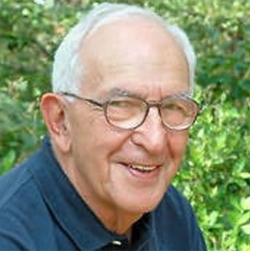 Martin Sandler, author of The Whydah: A Pirate Ship Feared, Wrecked, and Found (Candlewick). I am working on two new books, and I’m planning on devoting as much time as possible to making them as exciting as they can be.
Martin Sandler, author of The Whydah: A Pirate Ship Feared, Wrecked, and Found (Candlewick). I am working on two new books, and I’m planning on devoting as much time as possible to making them as exciting as they can be. 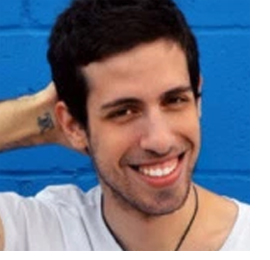 Adam Silvera, author of They Both Die at the End (Harper/HarperTeen). My resolution is to finish a draft for an idea that's been bouncing around in my head for about nine years now. It's an ambitious fantasy novel that I desperately needed as a teenager and never saw. A book that I still haven't seen in my adult years so I'm just going to write it myself.
Adam Silvera, author of They Both Die at the End (Harper/HarperTeen). My resolution is to finish a draft for an idea that's been bouncing around in my head for about nine years now. It's an ambitious fantasy novel that I desperately needed as a teenager and never saw. A book that I still haven't seen in my adult years so I'm just going to write it myself. Dashka Slater, author of YALSA Excellence in Nonfiction finalist The 57 Bus (Farrar).
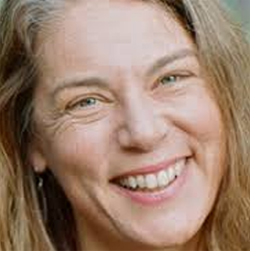 My 2018 writing resolution is in rhyme: Start something new. Finish something old. Build on what I’ve built. Try something bold. The first two lines are self-explanatory— I’ve got lots of ideas for new projects, and lots of existing projects that need finishing—I’d like to do some of each. The last two lines are the two poles of managing a writing career—be steady enough to build on the body of work I have, while at the same time being fearless enough to try something completely different. We’ll see how I do!
My 2018 writing resolution is in rhyme: Start something new. Finish something old. Build on what I’ve built. Try something bold. The first two lines are self-explanatory— I’ve got lots of ideas for new projects, and lots of existing projects that need finishing—I’d like to do some of each. The last two lines are the two poles of managing a writing career—be steady enough to build on the body of work I have, while at the same time being fearless enough to try something completely different. We’ll see how I do! 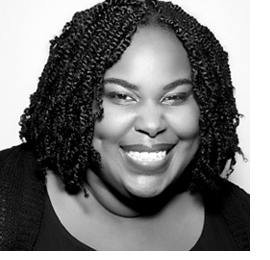 Renée Watson, author of Piecing Me Together (Bloomsbury). I resolve to be vulnerable on the page, to push through fear and self-doubt, and tell the stories I want to tell. I resolve to create stories that honor our struggle and celebrate our joy.
Renée Watson, author of Piecing Me Together (Bloomsbury). I resolve to be vulnerable on the page, to push through fear and self-doubt, and tell the stories I want to tell. I resolve to create stories that honor our struggle and celebrate our joy.  Ibi Zoboi, author of National Book Award finalist American Street (HarperCollins/Balzer + Bray). In 2018, I resolve to create more time for daydreaming, to stare out into space and let new ideas dance around me. Daydreaming and deep thinking are what made me become a writer. I have to go back to that creative space where I can just wallow in my thoughts. This is where innovation is born.
Ibi Zoboi, author of National Book Award finalist American Street (HarperCollins/Balzer + Bray). In 2018, I resolve to create more time for daydreaming, to stare out into space and let new ideas dance around me. Daydreaming and deep thinking are what made me become a writer. I have to go back to that creative space where I can just wallow in my thoughts. This is where innovation is born. RELATED
RECOMMENDED
CAREERS
The job outlook in 2030: Librarians will be in demand
CAREERS
The job outlook in 2030: Librarians will be in demand
ALREADY A SUBSCRIBER? LOG IN
We are currently offering this content for free. Sign up now to activate your personal profile, where you can save articles for future viewing


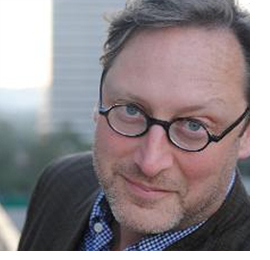




Add Comment :-
Be the first reader to comment.
Comment Policy:
Comment should not be empty !!!